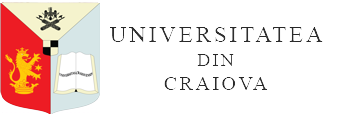RETURNING TO THE ESSENTIALS: ETHICS, HUMANISM, AND RESPONSIBILITY IN UNIVERSITY EDUCATION
DOI:
https://doi.org/10.52846/afucv.v1i55.97Keywords:
open reason, university, social responsibility, epistemology, anthropology, ethics, question of meaning, comprehensive education, solidarity, humanitiesAbstract
This article analyzes the importance of studying the humanities in university education and their contribution to the holistic development of students. In a context dominated by technical specialization and the fragmentation of knowledge, it is argued that the humanities play an essential role in fostering critical reflection, ethical sensitivity, and a profound understanding of the human condition. These disciplines enable the connection of technical knowledge with transcendent values that go beyond the limits of specific competencies.
The subject "Education for Social Responsibility," implemented as part of the humanities program at the Universidad Francisco de Vitoria, is presented as an essential component for the ethical and social development of students. This course introduces students to topics such as human dignity, equality, and solidarity, while exposing them to complex human realities through volunteering and community activities. These experiences allow students to internalize ethical values, foster empathy, and critically reflect on the impact of their professional decisions on society.
This study explores the philosophical foundations of the course on Social Responsibility through the lens of the open reason approach, highlighting its relevance in the holistic education of university students. Based on epistemological, anthropological, ethical, and sense-related foundations, it examines how this subject transcends the transmission of technical knowledge to integrate a broader and more transcendental understanding of the human being and their environment. The concept of open reason, characteristic of the Universidad Francisco de Vitoria, guides this approach by promoting an interdisciplinary dialogue that connects science and the humanities, seeking a synthesis of knowledge oriented toward serving the common good.
The research findings emphasize the importance of linking anthropological and ethical principles with professional praxis, providing students with tools to address complex social issues from a humanistic and supportive perspective. This interdisciplinary approach helps develop professionals capable of integrating transcendental values into their decisions, thereby fostering responsible and sustainable social transformation.


